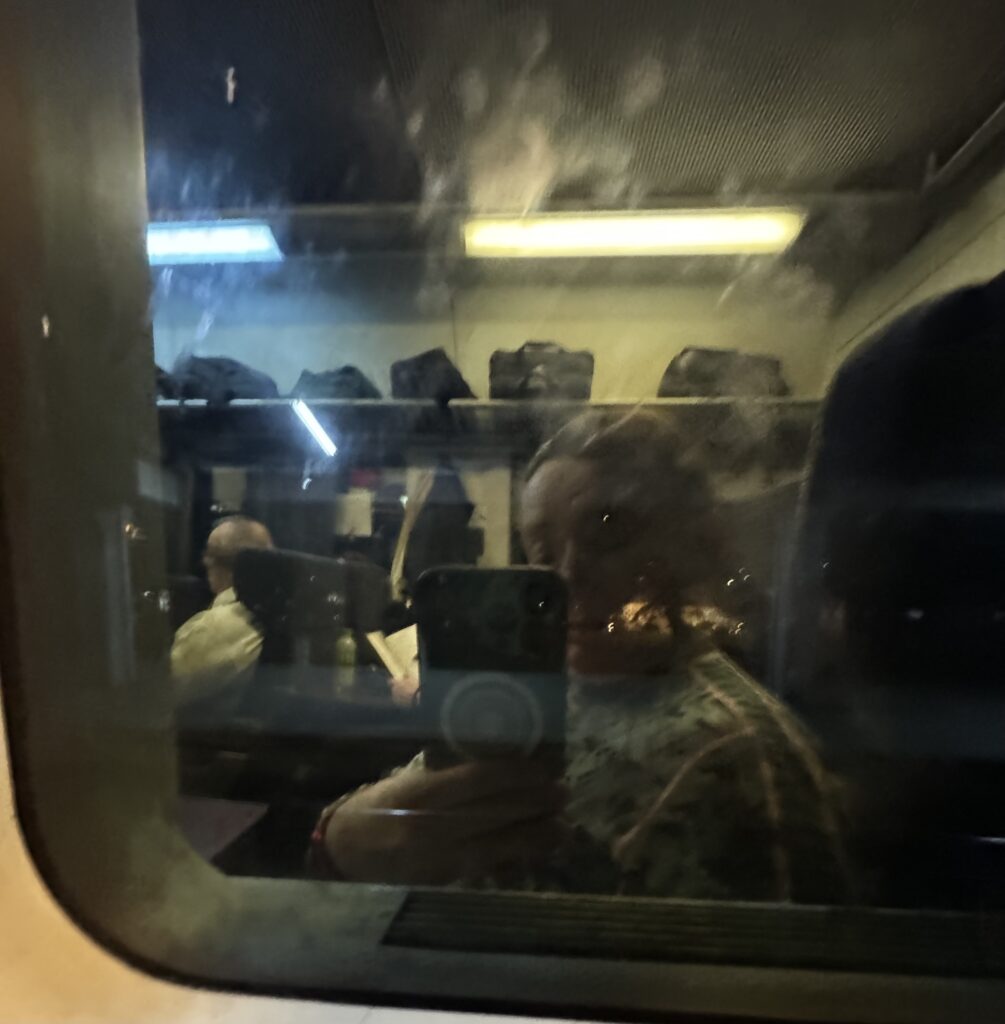It began in the darkness, as many surrealist journeys do. At 6:45 a.m., I boarded a boat in Sulina, the furthest whisper of Europe, where the Danube Delta dissolves into the Black Sea. Sulina is a place of contradictions: a remote town where pelicans outnumber people but still boasts Wi-Fi strong enough for Netflix. The boat ride was as brisk as the November air, but this was just the prologue.
From Tulcea, I climbed into a microbus, a modern Romanian chariot of despair. If there’s a more efficient way to question one’s life choices, it’s being packed into a sardine can on wheels with 20 strangers. Personal space became a concept as foreign as the English language to my seatmate, who generously shared his life story and half a sandwich with me. Five hours later, I was spit out into Bucharest, disheveled but resolute, with three hours to kill before my next leg.
The Bucharest North railway station McDonald’s is a liminal space, part cafeteria, part anthropology experiment. Its patrons range from backpack-toting students to pensioners nursing espresso shots like lifelines. I found a seat next to an outlet that didn’t work, a metaphor I tried not to linger on. In the world of Fulbright research, even McDonald’s fries are fuel for intellectual labor.
At 4:45 p.m., I boarded the train to Sibiu. The first stretch to Brașov was deceptively efficient, slicing through the Carpathians with purpose, as if the train itself had ambitions of grandeur. But from Brașov onward, the mask dropped. This was no longer a train but an existential test, what one Fulbright colleague aptly described as a “slowly moving insane asylum.”
The train crawled forward, station by station, at a pace so glacial I expected to see woolly mammoths grazing outside. Except it was dark, so dark that the windows reflected only the wagon’s interior, where a handful of passengers sat like Kafkaesque caricatures. A man in a fur hat muttered to himself while clutching a bottle of something clear and dangerous. A woman a few rows down spoke on her phone in increasingly loud tones, her voice echoing into the void. The fluorescent lights buzzed overhead, casting a sickly yellow glow that made everyone look vaguely haunted.
Somewhere in the middle of this journey, as if to punctuate the absurdity, the train stopped completely. Not at a station, but in the middle of nowhere. Just tracks, darkness, and an ominous silence that swallowed the wagon whole. For a moment, I half-expected the Dementors to show up, gliding through the gloom to claim us all. Instead, there was only the soft creak of the rails, the shuffle of restless passengers, and the unnerving realization that no one, not even the conductor, seemed to know why we had stopped.
Meanwhile, I alternated between scribbling in my notebook and staring into the abyss of my travel itinerary. This was my fourth mode of transportation for the day. It had been hours since I left Sulina and days, it seemed, since I left the comfort of coherent thought. What drives someone to endure such an odyssey? A Fulbright grant and an academic’s masochistic sense of duty, apparently.
Travel days like this strip away the romantic notions of cultural immersion and leave you with the raw truth: the researcher’s life is often unglamorous, exhausting, and deeply weird. Yet, even in this moment of absurdity, there’s a strange comfort. The rhythms of the train, the endless stop-and-go of small-town Romania, the faint smell of stale pretzels, it all becomes part of the story, part of the work.
By the time I reach Sibiu, it will be close to midnight. The city’s cobblestone streets and pastel facades will seem like a mirage after the surreal purgatory of this train ride. But for now, I sit in this ghostly wagon, listening to the creak of the rails and the faint murmurs of my fellow passengers. If nothing else, today has reminded me of an essential truth about research: the journey is just as important as the destination, even when that journey feels like it’s crawling through an alternate dimension.
Tomorrow, I will wake up in Sibiu and work on my conference presentation. Tonight, I ride the slowly moving insane asylum, a traveler caught between worlds, documenting the beautiful, absurd reality of it all.


Maybe you should have chosen the Yangtze instead. But I would just like to say here that in addition to your professional accomplishments and your hiking triumphs, you have become more than proficient at what is a second language. Shades of Conrad or Nabokov. Brava. Keep up the good work.